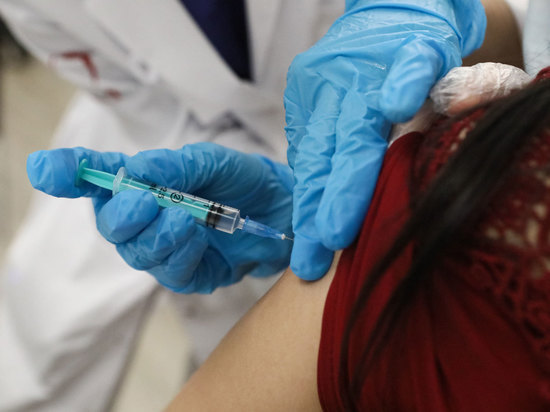The neural network has created a vaccine against the covid of the future: “A little bit will flow from the nose”
[ad_1]

New drug targets T-cell immunity
A universal vaccine effective against all strains of coronavirus was created by scientists from the Massachusetts Institute of Technology using artificial intelligence. The immunity that it will help to develop will be relevant even when the body collides with mutated types of covid.
All known COVID-19 vaccines use one or more polypeptides of the SARS-CoV-2 Spike protein, or the so-called spike protein, protruding above the surface of the coronavirus particle.
However, focusing only on the Spike protein as the sole vaccine target turned out not to be quite the right path. The fact is that Spike is evolving rapidly, which means that other viral variants subsequently appear that the old vaccines no longer take.
The researchers decided to bet on the least changing, conservative parts isolated from the entire viral set of coronavirus proteins, the so-called T-cell antigens, which are easily recognized by human T-lymphocytes.
The search for the desired antigens and their combinations, found in the largest number of people, was assigned to neural networks. The resulting drug was tested on mice infected with SARS-CoV-2. Already seven days after being vaccinated with their new MIT-T-COVID vaccine, almost a quarter of all cells in the animals’ lungs had T-lymphocytes. This made it possible to reduce morbidity and prevent mortality in most of them.
The result, according to the authors of the work, inspires confidence that the new vaccine will be able to protect people from future, as yet unknown strains of coronavirus.
Comment by a specialist in the field of molecular biology of cancer, head of the cell proliferation laboratory of the V. A. Engelhardt Institute of Molecular Biology of the Russian Academy of Sciences, Corresponding Member of the Russian Academy of Sciences Petr Chumakov:
– The fact that scientists have paid attention to the areas that induce T-cell immunity, that is, they fight infected covid cells, is the right approach. Unfortunately, this method is a little late in relation to covid, because now this disease has moved into the category of relatively weak ones. However, this work has implications for the future, for vaccines against more common infections such as the flu. As we know, a separate vaccine is made for it every year, depending on the circulating version of the virus. But it is possible, by analogy with MIT-T-COVID, to make a universal flu vaccine.
A person vaccinated with it will most likely get sick (T-cell vaccines do not guarantee complete protection of the virus), but this disease will have very mild manifestations: a little bit will flow from the nose and that’s it.
True, it should be noted that one cannot expect an early T-cell vaccine against covid for humans. After testing in mice, it will take years to see if it will be effective at all against the human variant of covid.
[ad_2]
Source link








